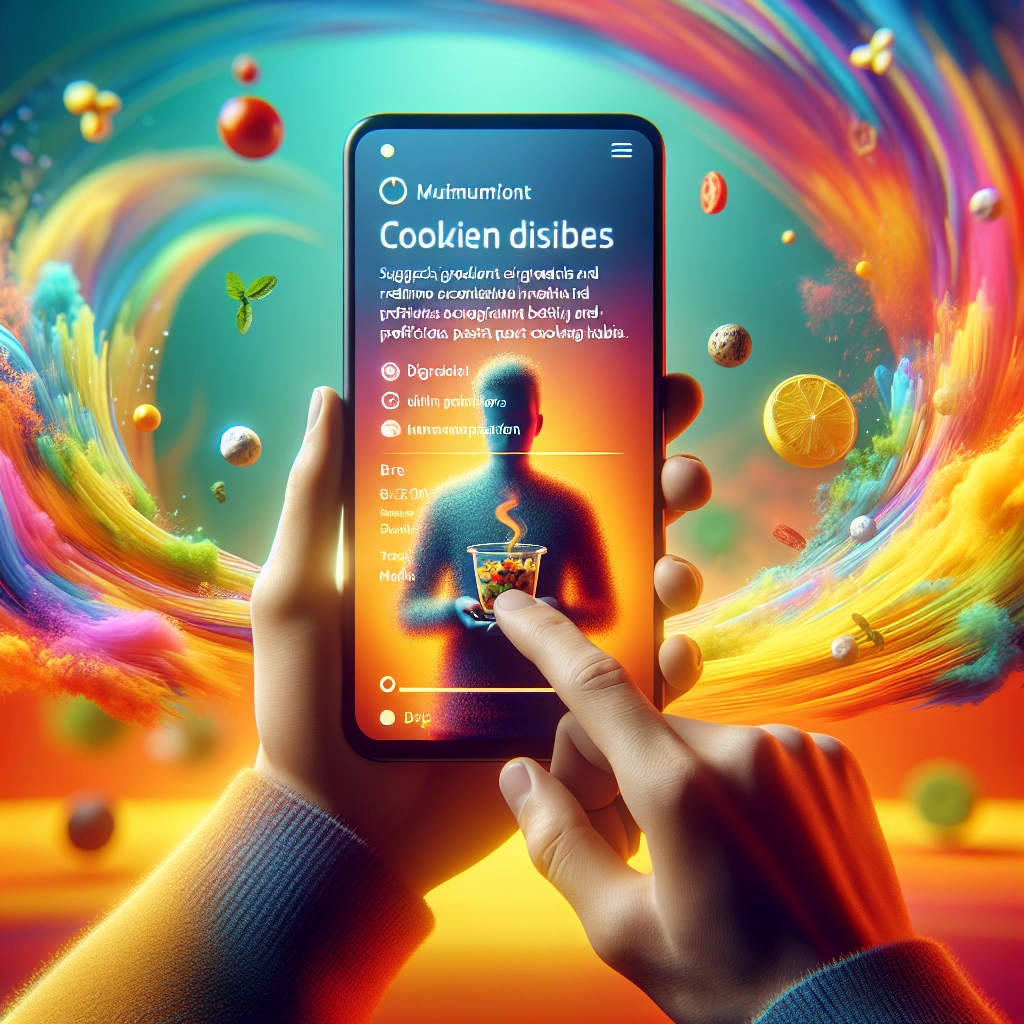

Data personalization refers to the process of using customer data to create a more personalized and relevant experience for each recipient. It is important in marketing and customer experience as it helps build stronger relationships with customers, increase brand loyalty, and drive business growth.
Data personalization is crucial in enhancing customer satisfaction and retention by showing that you care about your customers and value their individual preferences. By utilizing various data sources such as customer profiles, purchase history, browsing behavior, and feedback, personalization can help create a more relevant, engaging, and memorable customer experience, leading to higher satisfaction, loyalty, and retention.
The more skillful a company becomes in applying data to grow customer knowledge and intimacy, the greater the returns they will experience. Companies that leverage data personalization effectively drive better customer outcomes and grow their revenue significantly compared to those who do not prioritize personalization in their marketing efforts.
Check out this Youtube video: Learn how data personalization can enhance your customer’s experience and boost your business’s success!
The History of Data Personalization
The evolution of data personalization in marketing has transformed over time, from basic email personalization to more advanced and targeted approaches. Initially, personalization merely involved adding the user’s name to an email, representing a significant milestone in the history of marketing.
However, the content of the emails remained uniform for all recipients, limiting the level of personalization.
Early examples of data personalization in business include the implementation of product recommendations and retargeting campaigns. These strategies leveraged customer data to tailor marketing messages and offerings to individual preferences and behaviors.
As technology advanced, the use of data-driven personalization became more prevalent, enabling businesses to deliver highly customized customer experiences across various touchpoints.
| Evolution of Data Personalization | Early Examples of Data Personalization |
|---|---|
| Basic email personalization | Product recommendations |
| Advanced targeted approaches | Retargeting campaigns |
Understanding Data Personalization
Data personalization works by leveraging customer data and behavior patterns to tailor content and experiences to individual preferences and needs. By analyzing customer data, businesses can gain insights into consumer behavior, enabling them to create personalized experiences such as targeted advertising, product recommendations, and customized messaging.
How data personalization works
Data personalization involves using data analytics to understand individual customer profiles, including their preferences, engagement history, and purchase behavior. This allows businesses to deliver tailored content, recommendations, and promotions based on each customer’s unique interests and needs.
For example, an e-commerce platform may use past purchase history to suggest similar products to a customer, enhancing their shopping experience and increasing the likelihood of a purchase.
The role of artificial intelligence in data personalization
Artificial Intelligence (AI) plays a crucial role in data personalization by analyzing vast amounts of customer data to identify trends, predict behavior, and make personalized recommendations. Machine learning algorithms can process and interpret complex data sets to deliver targeted ads, personalized product suggestions, and custom messaging at scale.
For instance, AI algorithms can analyze browsing history and past interactions to predict and display relevant content for each user, enhancing user engagement and satisfaction.
| Benefits of Data Personalization | Disadvantages of Data Personalization |
|---|---|
| – Enhanced customer experience | – Data privacy concerns |
| – Increased customer engagement | – Risk of misusing consumer data |
| – Higher conversion rates | – Lack of relevance in personalization |
Data personalization is a powerful strategy that enables businesses to tailor content and experiences to individual consumers, thereby enhancing customer satisfaction, engagement, and conversion rates. Leveraging artificial intelligence for data analysis and pattern recognition further amplifies the effectiveness of data personalization, leading to more targeted and impactful marketing efforts.
Remember, personalizing content based on customer data is not just a trend; it’s a strategic approach that can significantly influence customer satisfaction and business performance.
Benefits of Data Personalization
Improved customer experiences
Data personalization leads to improved customer experiences by tailoring products and services to individual preferences. By analyzing customer data, businesses can offer personalized recommendations, create customized content, and provide tailored offers, resulting in enhanced satisfaction and engagement.
Increased customer retention and loyalty
Data personalization fosters increased customer retention and loyalty as it demonstrates a company’s commitment to understanding and catering to its customers’ needs. By delivering personalized interactions, businesses can build stronger emotional connections with customers, driving repeat purchases and long-term loyalty.
Higher conversion rates and sales
Data personalization contributes to higher conversion rates and sales by delivering targeted and relevant experiences that resonate with individual customers. Through personalized marketing campaigns and tailored product suggestions, businesses can increase customer engagement, trust, and ultimately drive more conversions and sales.
Implementing Data Personalization Strategies
Collecting and analyzing customer data
To effectively gather customer data for personalized marketing campaigns, businesses can utilize surveys, website behavior analysis, social media interaction tracking, customer feedback and reviews, and direct customer inquiries. Leveraging technology for data collection and analysis, such as customer relationship management (CRM) software and analytics tools, enables businesses to identify valuable insights and preferences for personalized content creation.
Creating personalized content and offers
Businesses can create personalized content and offers by utilizing customer data to develop buyer personas, segment email lists for tailored messaging, and personalize email subject lines. By understanding their audience well and implementing meaningful opt-in forms, businesses can build trust and engage customers with personalized content that resonates with their needs and preferences.
Leveraging technology for personalized communication
In the realm of personalized communication, businesses can leverage technology to automate social media posting, promote existing differentiating technologies, and personalize email marketing campaigns. Additionally, adopting advanced technologies like chatbots, virtual and augmented reality, and voice capabilities can further enhance personalized customer interactions, providing a unique and tailored experience for each individual.
| Data Collection Methods | Benefits |
|---|---|
| Surveys | Insightful customer preferences and feedback |
| Website Behavior Analysis | Understanding of customer engagement patterns |
| CRM Software | Efficient management and analysis of customer data |
| Email Personalization | Enhanced customer engagement and conversion |
By implementing these strategies, businesses can enhance customer engagement, foster brand loyalty, and boost sales through tailored and personalized marketing approaches.
Give it some thought, folks. This is big league stuff we’re talking about here.
We’ve got to be smart and strategic with our data personalization efforts. Let’s make data great again!
Data Privacy and Data Personalization
Balancing personalization with consumer privacy concerns
Balancing personalization with consumer privacy concerns is a delicate dance. On one hand, businesses strive to provide tailored experiences, but on the other, consumers worry about the security and ethical use of their personal data. It’s crucial to establish transparent policies and obtain explicit consent before collecting any user data. By demonstrating a genuine commitment to privacy, businesses can foster trust and address consumer apprehensions, ensuring a harmonious balance between personalization and privacy.
Best practices for ethical and secure data personalization
Ethical and secure data personalization relies on transparent data collection practices. Businesses should communicate clearly with customers regarding what data is collected, how it will be used, and offer opt-out options. Emphasizing the collection of only necessary data, obtaining consent, and upholding stringent security measures are paramount. Striking the right balance between tailored experiences and privacy concerns is achievable through a commitment to ethical data handling practices.
| Best Practices for Ethical and Secure Data Personalization |
|---|
| 1. Transparent communication on data collection and usage |
| 2. Opt-out options for customers |
| 3. Collection of only necessary data |
| 4. Obtaining explicit consent |
| 5. Implementation of rigorous security measures |
Overcoming Data Personalization Challenges
Data accuracy and quality
Maintaining data accuracy and quality is crucial for effective data personalization. This involves ensuring that the data is consistent, reliable, and follows defined formats, values, and business rules.
For instance, establishing procedures to limit unauthorized changes and validating data to conform to recognized formats are essential steps to enhance data accuracy.
Legal and regulatory compliance
Achieving legal and regulatory compliance is a pivotal aspect of data personalization. Organizations must adhere to data protection laws and standards to securely store, process, and manage customer data.
This includes understanding and abiding by data privacy protection laws and consistently cultivating trust with customers by transparently explaining data usage.
Managing customer expectations
Effectively managing customer expectations is integral to successful data personalization strategies. Establishing regular communication, personalized interactions, and leveraging detailed customer profiles are key tactics to meet and exceed customer expectations.
By integrating advanced digital technologies and proprietary data, businesses can increase revenue by delivering personalized experiences.
| Data Personalization Challenge | Key Tactics |
|---|---|
| Data accuracy and quality | Validate data formats |
| Legal and regulatory compliance | Adhere to data protection laws |
| Managing customer expectations | Personalize interactions and communication |
Remember, without accurate data, regulatory compliance, and meeting customer expectations, data personalization efforts may fall short of delivering the desired impact.
Data Personalization in E-commerce
Personalizing product recommendations
Data personalization in e-commerce allows brands to tailor product recommendations based on customers’ past purchase history and preferences. By analyzing customer behavior and demographics, e-commerce platforms can suggest relevant products, increasing the likelihood of purchase and enhancing the overall shopping experience.
For instance, a customer who frequently purchases sports equipment may receive personalized recommendations for the latest athletic gear or accessories.
Creating personalized shopping experiences
Utilizing data personalization in e-commerce enables businesses to provide personalized shopping experiences tailored to individual customers’ needs and interests. By delivering relevant content, product recommendations, and offers, based on their preferences and behavior, brands can significantly improve overall customer satisfaction.
For example, offering tailored product recommendations or implementing a virtual fitting room feature can enhance the personalized shopping experience, ultimately driving customer loyalty and sales.
Using data to improve customer retention
Data personalization plays a crucial role in improving customer retention in e-commerce. By leveraging customer data and purchase history, businesses can implement effective customer retention strategies such as loyalty programs and exclusive discounts for loyal customers.
This personalized approach fosters a sense of appreciation among customers, incentivizing repeat purchases and building long-term relationships, ultimately leading to improved customer retention rates. For instance, businesses can use LTV data to adjust bidding strategies and capture and retain the most relevant shoppers, thus generating long-term profits.
| Personalization Trend | Impact on E-commerce |
|---|---|
| Tailored product recommendations | Increases likelihood of purchase |
| Personalized shopping experiences | Enhances customer satisfaction |
| Improved customer retention | Fosters long-term customer relationships |
Data personalization is revolutionizing the e-commerce landscape by allowing businesses to create tailored experiences for their customers, resulting in increased customer satisfaction, loyalty, and retention.
Remember, folks, data personalization in e-commerce is not just a trend, it’s the future! So, let’s embrace it and watch our businesses grow like never before!
Data Personalization in Email Marketing
Personalizing email content and subject lines
Personalizing email content and subject lines is crucial for grabbing the recipient’s attention. Utilizing the recipient’s name in the subject line can create a sense of familiarity and increase the likelihood of the email being opened.
For instance, addressing the recipient by their first name can make the email feel more personal and engaging. Incorporating specific interests or milestones, such as birthdays and anniversaries, into the subject line can also enhance personalization and resonate with the recipient on a deeper level.
Segmenting email lists for targeted communication
Segmenting email lists allows for tailored communication to specific groups of recipients. By organizing recipients into smaller, targeted segments based on various properties like location, industry, language, content engagement, and stage of the funnel, the content of the emails can be made more relevant and valuable to the recipients.
For instance, sending tailored messages to subscribers based on their previous interactions and behavior can significantly boost engagement and conversion rates.
Using behavioral data for personalized email campaigns
Behavioral data plays a pivotal role in crafting personalized email campaigns. By analyzing subscribers’ behavior, such as purchase frequency, recency, value, and product category, marketers can create highly targeted and relevant campaigns.
For instance, product recommendations based on overarching behavioral data can provide valuable insights and enhance the effectiveness of marketing campaigns. Moreover, leveraging behavioral data to automate email marketing campaigns based on past and present brand interactions can result in more impactful and personalized communication with subscribers.
| Aspect | Example |
|---|---|
| Personalization Techniques | Using recipient’s first name, interests, birthdays, and transaction history |
| Email List Segmentation Strategies | Based on location, industry, language, and content engagement |
| Utilization of Behavioral Data | Product recommendations, automated trigger campaigns based on behavior |
Let’s make email marketing great again by harnessing the power of data personalization to provide our subscribers with irresistibly personalized and engaging content.
Data Personalization in Social Media Marketing
Personalizing social media ads
Personalizing social media ads involves leveraging user data to create targeted advertisements that cater to individual preferences. By analyzing demographics, browsing behavior, and interests, marketers can tailor ad content to resonate with specific audience segments.
For instance, utilizing dynamic product ads that showcase items based on user interactions can significantly enhance ad relevance and engagement.
Tailoring content for specific audience segments
Tailoring content for specific audience segments entails crafting messages and posts that cater to the unique preferences and needs of different user groups. For example, creating varied content for distinct demographic segments can help maximize engagement and resonance.
By considering factors like age, location, and interests, marketers can ensure that their content is relevant and appealing to specific audience subsets.
Customizing social media interactions based on user preferences
Customizing social media interactions based on user preferences involves adapting the tone, language, and content style to align with the preferences of individual users. For instance, addressing user pain points, needs, and goals through personalized responses and interactions can significantly enhance user experience and engagement.
By leveraging insights derived from user interactions, brands can effectively tailor their communication to resonate with their audience on a more personalized level.
| Social Media Interaction | Description |
|---|---|
| Likes | Common social media interaction, often serving as an indication of content appreciation |
| Follows | Occurs when users choose to subscribe to a brand’s account, signifying interest in the brand’s content |
| Comments | Involves user-provided feedback or engagement through textual or visual responses to content |
| Direct Messages | Enables private, one-on-one communication between users and brands, facilitating personalized interactions |
These personalized approaches to social media marketing not only enhance user experience but also contribute to improved engagement and brand loyalty.
Personalization in Website User Experience
Creating personalized website content
Creating personalized website content is crucial for engaging and retaining users. By understanding user preferences and behaviors, websites can tailor content to provide a unique and tailored experience for each visitor.
This can be achieved through dynamic content that adapts in real-time, ensuring that each user receives the most relevant and applicable information.
Implementing personalized user interfaces
When implementing personalized user interfaces, the focus should be on creating a seamless and engaging user experience. This involves integrating user journey, information architecture, and visual design to deliver an efficient, interactive, and visually appealing interface.
By creating interfaces that cater to individual user preferences, websites can enhance user engagement and satisfaction.
Utilizing data for website personalization
Utilizing data for website personalization is the foundation of effective personalization strategies. Gathering user data responsibly and analyzing it allows websites to understand user behavior and preferences.
This includes demographic information, browsing history, purchase history, customer feedback, and survey responses. By leveraging this data, websites can tailor content and functionality to meet the specific needs of their visitors, ultimately enhancing the overall user experience.
| Personalization Strategy | Description |
|---|---|
| Creating personalized website content | Tailoring content to provide unique experiences for each visitor. |
| Implementing personalized user interfaces | Integrating user journey, information architecture, and visual design to deliver an engaging interface. |
| Utilizing data for website personalization | Gathering and analyzing user data to tailor content and functionality. |
Website personalization plays a vital role in enhancing user experience and driving user engagement. By creating personalized content, implementing personalized user interfaces, and leveraging data for personalization, websites can ensure that each visitor receives a tailored and engaging experience, ultimately leading to improved user satisfaction and retention.
The Future of Data Personalization
Trends in data personalization technology
Data personalization technology is rapidly evolving to meet the growing demands of consumers for more tailored and relevant experiences. One of the exciting trends in data personalization technology is the increasing use of first-party data.
Companies are leveraging direct interactions with their customers to gather valuable insights and create personalized experiences. Another trend to watch out for is the rise of cookieless personalization.
With the looming demise of third-party cookies, businesses are exploring alternative methods to achieve effective personalization without relying on traditional tracking mechanisms.
The potential impact of data privacy regulations
As businesses strive to deliver personalized experiences, they must navigate the potential impact of data privacy regulations. The General Data Protection Regulation (GDPR) and the California Consumer Privacy Act (CCPA) are shaping the landscape of data personalization by emphasizing the importance of obtaining user consent for data collection and usage.
Striking the balance between personalization and data privacy is crucial to ensure compliance with evolving privacy laws and regulations. This balance requires a deep understanding of privacy principles, reframing the discussion around using personalization, and leveraging legal counsel to align practices with legal requirements.
Innovations in personalized marketing strategies
Innovations in personalized marketing strategies are reshaping the future of customer engagement. Advanced marketing technology is enabling businesses to gather comprehensive customer insights, both in-store and online, to create more personalized interactions.
Personalized marketing strategies are also leveraging social proof, AI-powered technologies, and personalized mobile customer experiences to enhance customer engagement and drive conversions. Additionally, brands are embracing innovations like image recognition and sensory engagement to bring virtual experiences to life, creating deeper and more impactful connections with their audiences.
The Role of Data Personalization in Customer Satisfaction
Personalized customer service experiences
Personalized customer service experiences play a pivotal role in enhancing customer satisfaction. By utilizing customer data such as purchase history, preferences, and behavior, businesses can provide tailored recommendations and solutions.
For instance, offering personalized product recommendations or addressing customers by name creates a sense of individualized care, leading to increased engagement and loyalty.
Building long-term relationships through data personalization
Data personalization serves as the foundation for building long-term relationships with customers. With access to valuable customer insights, businesses can anticipate needs, personalize interactions, and offer relevant solutions.
For example, by leveraging data to understand customers on a deeper level, companies can foster a deeper connection and trust, ultimately leading to sustained customer loyalty and retention.
Measuring the impact of data personalization on customer satisfaction
Measuring the impact of data personalization on customer satisfaction involves tracking key metrics such as customer engagement, conversion rates, and feedback analysis. By utilizing tools like Kissmetrics or Salesforce, businesses can evaluate the influence of personalized experiences on customer behavior and decision-making.
This data-driven approach enables businesses to gauge the effectiveness of their personalization strategies and make informed adjustments to further enhance customer satisfaction.
| Key Metrics for Measuring Data Personalization Impact |
|---|
| Customer Engagement |
| Conversion Rates |
| Feedback Analysis |
Data personalization not only drives personalized customer service experiences but also establishes long-term relationships while providing measurable impacts on customer satisfaction through strategic measurements and insights.
All in all, data personalization is a game-changer in the realm of customer satisfaction, serving as the cornerstone for tailored experiences and lasting customer relationships.
Case Studies: Successful Data Personalization Examples
Examples of companies effectively using data personalization
- One notable example of successful data personalization is Amazon’s product recommendation system. By utilizing customer browsing and purchase history, Amazon curates personalized product suggestions, enhancing the user experience and increasing sales.
Impact of data personalization on company performance
- The impact of data personalization on company performance is exemplified by Netflix, which leverages viewer data to recommend personalized content, resulting in increased customer satisfaction, retention, and revenue. This demonstrates the substantial positive impact of data personalization on business outcomes.
Lessons learned from successful data personalization initiatives
- A crucial lesson from successful data personalization initiatives is the significance of leveraging customer data to tailor experiences. By understanding and utilizing customer preferences, companies can enhance engagement, satisfaction, and ultimately drive business growth.
| Company | Example of Data Personalization |
|---|---|
| Amazon | Tailored product recommendations based on browsing and purchase history. |
| Netflix | Personalized content recommendations by leveraging viewer data, resulting in increased customer satisfaction and revenue. |
The table above highlights specific examples of companies effectively utilizing data personalization to enhance their customer experience and drive business growth.
Data Personalization and User Behavior
Understanding user behavior through data
Personalization is all about understanding user behavior through data. By analyzing user interactions, preferences, and historical data, businesses can gain valuable insights into what their users like, dislike, or need, allowing them to tailor their offerings to meet specific needs and expectations.
Understanding user behavior through data empowers companies to create personalized experiences that resonate with their audience, leading to increased engagement, loyalty, and Higher conversion rates.
Using data personalization to influence user behavior
Data personalization serves as a powerful tool to influence user behavior. By leveraging user data to deliver personalized content, product recommendations, and targeted marketing messages, businesses can effectively influence user behavior.
Tailoring the user experience based on individual preferences and past interactions enables companies to create a more compelling and relevant customer journey, ultimately leading to increased conversions and customer satisfaction.
The psychology of personalized marketing
The psychology behind personalized marketing revolves around understanding the emotional and cognitive factors that drive consumer behavior. Personalization has the potential to trigger a dopamine release in customers, creating a sense of satisfaction and delight.
By tapping into psychological factors such as motivation, learning, and socialization, personalized marketing can effectively influence consumer attitudes and purchasing decisions. It’s not just about data; it’s about understanding the human psychology behind individualized experiences and leveraging that understanding to drive meaningful interactions and engagement.
Data Personalization Metrics and Measurement
Key performance indicators for data personalization
1. Conversion Rates: This metric measures the percentage of users who take a specific action, such as making a purchase, after engaging with personalized data. It helps in evaluating the effectiveness of personalized recommendations in driving conversions.
2. Average Revenue per User (ARPU): ARPU calculates the average revenue generated by individual users through personalized content. It provides insights into the financial impact of data personalization strategies.
3. Click-Through Rate (CTR): CTR evaluates the effectiveness of personalized content in prompting user interaction by measuring the ratio of clicks on personalized recommendations to the total impressions.
4. Churn Rate: Churn rate measures the rate at which users stop engaging with a service after accessing personalized data, providing crucial information on user retention and satisfaction.
Tools and methods for measuring the impact of data personalization
| Tools | Description |
|---|---|
| Surveys | Collecting direct feedback from users to gauge the impact and effectiveness of personalized data. |
| Customer Relationship Management (CRM) | Analyzing customer behavior and interaction with personalized content to assess its impact on customer relationships. |
| Analytics | Leveraging data analytics to measure how users engage with personalized content and the resulting impact on business goals. |
| AI and Data Analytics | Utilizing advanced AI algorithms and data analytics to track individual user preferences and interactions with personalized data. |
Analyzing data to improve personalization strategies
To improve personalization strategies, businesses can analyze customer data to identify trends, preferences, and pain points. By leveraging AI and data analytics, they can gain insights into customer behavior and use these to refine their personalization approaches.
Additionally, data-driven customer feedback and CRM evaluations can guide businesses in making informed decisions to enhance their data personalization strategies.
Recommended Amazon Products for Data Personalization
Here’s a curated list of products that can help you achieve data personalization with ease. These recommendations are based on their functionality, price, and reviews.
Fitbit Charge 4 Fitness and Activity Tracker
The Fitbit Charge 4 lets you track your daily activities, monitor your heart rate, and analyze your sleep patterns to provide personalized health insights. With its built-in GPS, you can accurately track your exercise routes and personalize your workout data.
The Fitbit Charge 4 also offers a long battery life and compatibility with various apps for a holistic data personalization experience.
Amazon Echo Dot (4th Gen) Smart Speaker
The Amazon Echo Dot is equipped with Alexa, a virtual assistant that can personalize your experience by learning and adapting to your preferences. You can use it to set reminders, play personalized music playlists, and control smart home devices for integrated data personalization.
Its small, compact design fits seamlessly into any room setting.
Kindle Paperwhite – Now Waterproof with 2x the Storage
The Kindle Paperwhite provides a personalized reading experience with its adjustable font size, font style, and reading preferences. It also offers personalized book recommendations based on your reading history and preferences.
Its waterproof feature allows you to enjoy your personalized reading experience anywhere without worrying about water damage.
iRobot Roomba 675 Robot Vacuum
The iRobot Roomba 675 uses intelligent sensors and advanced algorithms to adapt to your home environment, providing personalized cleaning routines based on your usage patterns. Its Wi-Fi connectivity allows you to control and schedule cleaning sessions from anywhere, ensuring that your home stays clean according to your personalized preferences.
Apple AirPods Pro
The Apple AirPods Pro offers personalized listening experiences with adaptive EQ, active noise cancellation, and spatial audio. The customizable fit and seal provide personalized comfort for extended use, while its easy setup and seamless device switching support a personalized audio ecosystem.
Top Recommended Product for Data Personalization
If you’re looking for the best solution for data personalization, we highly recommend the Fitbit Charge 4 Fitness and Activity Tracker (https://www.amazon.com/s?k=Fitbit+Charge+4). Here’s why:


With advanced features such as heart rate monitoring, sleep analysis, and personalized health insights, the Fitbit Charge 4 offers a comprehensive approach to data personalization in the realm of fitness and wellness. Its compatibility with various apps and long battery life ensures a seamless and personalized experience for users. Ready to improve your data personalization efforts? Check out the Fitbit Charge 4 Fitness and Activity Tracker today for the best results!
Conclusion
Data personalization is set to play a significant role in the future of marketing and customer experience. With the advancements in technology and the availability of data, personalized marketing efforts will continue to shape the way businesses engage with their customers.
Moreover, the impact of data personalization on marketing and customer experience cannot be understated. By leveraging data to personalize content, recommendations, and communications, businesses can create more relevant and meaningful interactions with their customers, ultimately leading to higher engagement and conversion rates.
Finally, the importance of data personalization lies in its ability to build stronger relationships with customers and drive business growth. As businesses continue to prioritize personalized experiences, the value of using data to tailor marketing efforts and enhance customer experience will only continue to grow in importance.












